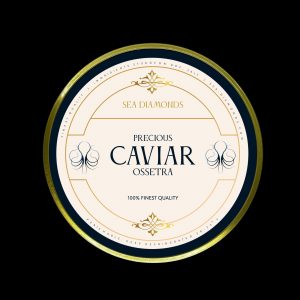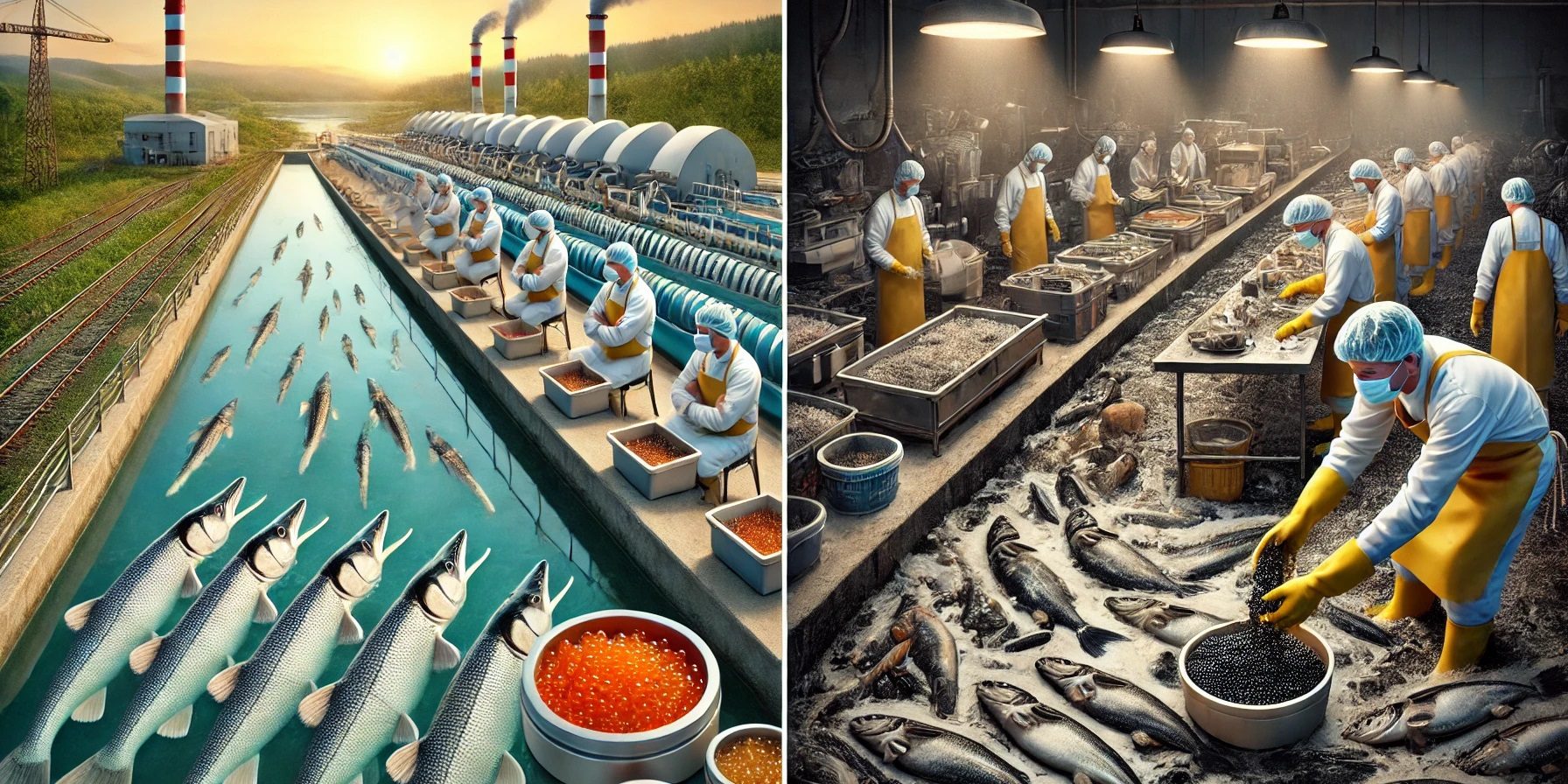Illegal sturgeon caviar, often produced in unsanitary and unregulated conditions, poses serious health risks. While its lower cost may seem appealing, the consequences of consuming such caviar can be far-reaching, from health issues to environmental and legal concerns.
Legal vs. Illegal Caviar
Sturgeon caviar has long been a symbol of luxury and exclusivity. During the Soviet era, it was a rarity available only to the elite. Today, while caviar is more accessible, it remains a costly delicacy. However, the high price of legally produced caviar drives some consumers to seek cheaper, illegal alternatives without considering the risks involved.
Legal caviar comes from aquaculture farms where sturgeons are raised in controlled environments. The production process complies with strict hygiene standards, ensuring the product’s safety and quality. Illegal caviar, on the other hand, is often harvested from wild sturgeons, violating national and international conservation laws. The illegal fishing of these endangered species not only harms the environment but also leads to unsanitary production methods.
Health Risks of Illegal Caviar
Illegal caviar is typically extracted from dead fish, which may have been left in unclean conditions for days. These eggs are washed in contaminated water from nearby lakes or rivers, exposing them to harmful bacteria and pathogens. Consuming such caviar can lead to food poisoning, infections, and other serious health issues.
In contrast, legal caviar is processed in facilities that maintain a stable temperature of no more than 10°C (50°F). This ensures freshness and eliminates the risk of contamination. Furthermore, legal producers adhere to rigorous standards for storage, transportation, and packaging, guaranteeing a safe and high-quality product.
Environmental and Legal Implications
The illegal harvesting of wild sturgeon not only threatens the survival of these ancient fish species but also disrupts ecosystems. Governments worldwide have implemented strict regulations to protect sturgeon populations, with severe penalties for violators. Consumers who purchase illegal caviar may also face legal consequences, as buying such products supports an unlawful industry.
Why Legal Caviar Is Worth the Investment
While legal caviar may be more expensive, it offers unmatched quality, safety, and ethical sourcing. Produced under controlled conditions, it ensures that consumers enjoy a premium product without compromising their health or contributing to environmental damage. As the saying goes, “The cheap comes out expensive,” and investing in certified caviar is a choice that benefits both individuals and the planet.
Conclusion
Choosing legal sturgeon caviar over its illegal counterpart is more than a matter of taste—it’s a commitment to health, sustainability, and responsibility. The next time you indulge in this delicacy, ensure it comes from a trusted, legitimate source to savor not just the flavor but also the peace of mind.






 Ossetra Caviar 3x50g (3x1.7oz)
Ossetra Caviar 3x50g (3x1.7oz)